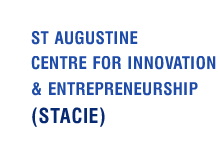What is a Patent?
A patent is an agreement or right where the state gives a monopoly on manufacture, use and trade for up to twenty years. In return, the owner gives certain technical information to the public sufficient for a skilled person to recreate the invention.
Click here to view patents available for licensing by The UWI
Reasons for patenting an invention
- Patents prevent individuals from using your invention without your consent.
- Patents provide rewards to inventors in the form of recognition for their work and material or monetary rewards for commercially successful inventions.
- The spur created by these patents promotes innovation, which in turn improves the quality of human life.
- The information provided by patent owners enhances the body of technical knowledge in the world, thereby encouraging further creativity and innovation and inspiring future generations.
Utility Certificate
Another form of protection for inventions is a utility certificate. A utility certificate provides similar rights to that of a patent and can be obtained much more easily and by a simpler and shorter procedure. The utility certificates differ from patents in three aspects:
- The inventive step required is smaller.
- The maximum term of protection provided by law is generally much shorter. In Trinidad and Tobago this term is ten years.
- The fees for obtaining and maintaining the rights are generally lower.
Patent Requirements
In order for an invention to be patented, it must fulfill the following three conditions:
- The invention must be useful. It cannot be a mere theoretical phenomenon.
- The invention must show an element of novelty. It has to possess a new characteristic that no one had done before in that particular field.
- The invention must show an inventive step which is not obvious to an average skilled person in the art to which the subject matter pertains.
Disclosure:
If you publish details of your invention, you cannot later obtain a patent for that invention. Public disclosure includes:
- publication in a journal
- presentation at a conference
- posting details on the internet
- PhD seminars and theses
- poster presentations
Recognition of Patents
A patent is only recognised in the country within which it is registered. Patents are sovereign rights, meaning that they can only be granted by a state within its jurisdiction. If the invention is patented only in one country, then the technology can be freely used and distributed within another, providing that the products do not enter a country where the relevant patent is enforced.
Patent Cooperation Treaty
If you are seeking to patent your invention in many countries, it is recommended that you use the Patent Cooperation Treaty (PCT) approach. The PCT allows you to file a single international application to seek patent protection for an invention in a large number of countries simultaneously. For those seeking broad protection in their target markets this treaty provides several benefits:
- Evaluation of chances of being granted a patent before incurring major costs with an International Search Report which contains a list of relevant prior art documents.
- Option of receiving an International Preliminary Examination Report where an examination is done, much as it would be for a direct application, and an opinion is given as to whether or not it meets the examining criteria.
- Options can be kept open for a longer time during which, markets, conditions and agents can be sought.
The PCT makes it easier to file for patents in different countries simultaneously since there is no one ‘world patent’. National applications are still required after the PCT process. For more information on the PCT please visit the PCT page on the WIPO website:http://www.wipo.int/pct/en/
How Patent rights can be lost
The patent right is not a guaranteed monopoly for the period that it is enforced, that is, from the date of issuance until the expiration date (twenty years from the date of filing). These rights can be revoked or lapse if:
- Annual patent maintenance fees are not paid.
- Insufficient disclosure to enable reproduction by a person with average skill in the art
- Subject matter extends beyond the content of the patent as filed
- Protection extended by an amendment which should not have been allowed
- Patent was granted to a person who was not entitled to it
Patent Searches
Researchers and inventors are encouraged to do a patent search using keywords to ensure that the work that they are about to embark or have embarked on is both novel and inventive. When a search is done initially the inventor understands what previous work has been done in his specific field and can then move on from there to do new research in that subject.
There are some excellent free sites that you should use when searching such as Free Patents Online and Google Patent Search. US patents can be found at www.uspto.gov/patft/index.html and European Patents at http://worldwide.espacenet.com. The World Intellectual Property Organisation (WIPO) Patentscope site at https://patentscope.wipo.int/search/en/search.jsf is highly recommended.
Royalties from patents
If the University decides to proceed with a patent application, you’ll be asked to assign your invention to the University. The University meets the cost of preparing and filing the patent applications. We’ll also agree to how royalties will be shared between you and the University. The UWI Policy on Intellectual Property Management and Commercialisation provides the following breakdown:
| Recipient | % of Net Income |
|---|---|
|
Inventor(s) |
50 |
|
Originating Department or Institute |
20 |
|
Originating Campus for University administrative overheads |
15 |
|
The UWI or its assignee |
15 |








